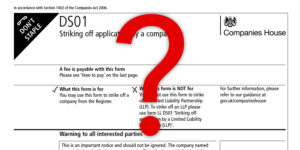As someone involved in a limited company, either as a director, shareholder, or both, you’re likely to work in a competitive environment where protecting certain information about your business could make the difference between success and failure. Non-disclosure agreements (NDAs) are how businesses often safeguard critical information about their operations.
In this post, we take a look at non-disclosure agreements and, crucially, whether or not your company needs to use them. Let’s get started.
What is a non-disclosure agreement?
Sometimes referred to as a confidentiality agreement, an NDA is a legal contract drawn up between at least two parties, that restricts the sharing of confidential information with other parties. It can be its own contract, or be included as part of a larger contract.
Once signed, the signatory is bound to keep the information that has been shared confidential.
A non-disclosure agreement is generally used to keep sensitive information, such as the following, private:
- Intellectual property (IP)
- Research
- Ideas
- Business plans
- Technical data
- Personal data (employee and client)
- Financial information
- Ongoing negotiations
In the UK, there are typically two types of NDA:
- One-way – for when only one party needs to disclose confidential information
- Mutual – for when more than one party needs to disclose confidential information
If a non-disclosure agreement is breached, and the case reaches court, the party who disclosed the secrets (or used them for purposes not set out in the agreement) may have to compensate for any lost profits. These can be substantial.
When your company should use an NDA
It’s a mistake to assume that a discussion between two parties will be kept private, even if what’s being spoken about may seem confidential to you.
- What becomes public information when you form a company?
- A guide to registering a trade mark in the UK
- Shareholder disputes – how to deal with them
Before entering into any form of business discussion, you should ask yourself whether the information you disclose could make you or your company vulnerable, commercially or from a security perspective.
If it does, you should consider having a solicitor draw up a non-disclosure agreement for you and have this signed before you proceed with any business discussions.
It’s easy to suggest that if you want something kept secret, simply don’t tell anyone about it – but in business, this isn’t reasonable, particularly for a company that’s just getting started or looking to expand.
Scenarios when your company may need a non-disclosure agreement
1. Partnering up with another company
If you’re looking to enter into a business relationship with another company, whether as a customer, supplier, or partner – sensitive information about your company (and theirs) is likely to be discussed. If you want a guarantee that this information is kept between you and them, you will need a non-disclosure agreement.
For example – You are developing a new service as part of your existing offering. Before you launch, you need to notify an existing partner about the service, so they can prepare their marketing activity. You don’t want your competition to find out about this, so it would be reasonable to have your partner sign an NDA.
2. Seeking investment or business advice
If you’re looking for a form of investment, or even just advice from a bank, accountant, or financial advisor, you will need to discuss your business’s activity in detail. Before entering into these discussions, you should protect yourself and your business by getting an NDA signed.
For example – Your startup requires funding and you have a number of meetings with potential investors lined up. To secure the investment, you must be candid with sensitive information about your company, such as your business plan, financial details, and information about your staff. You should draw up a separate NDA for each potential investor and have them sign this before going into any meetings.
3. Using a service
As your business grows, you may need to pay other businesses to provide you with a service. However, to effectively provide this service, they need to be privy to information you don’t want to be exposed.
For example – Your business has hired a digital marketing consultant to handle an ongoing email campaign. To facilitate this, you must share a list of personal data for all your clients. Before doing so, you should have the consultant sign an NDA to ensure that they don’t use the list for their own purposes.
4. When employees can use information against you
Non-disclosure agreements aren’t just for dealing with other companies. They can be appropriate for employees too. After all, apart from you, these people know more about your business than anyone else.
Some businesses even ask candidates to sign a non-disclosure agreement before going through the interview process.
For example – You have created an innovative new product that is causing a stir in the industry. As your business grows, you must take on a few employees to help you. To do their job correctly, they need to fully understand your intellectual property. To stop them from going off and starting their own competing business, you could request that they sign an NDA.
What information does a non-disclosure agreement need to include?
The non-disclosure agreement is a legal contract that contains a number of statements, which must be written in the correct way.
Because of this, we do not recommend drawing up your own non-disclosure agreement(s) – as a poorly written non-disclosure agreement is essentially worthless.
We urge you to use a professionally created template (there are free templates online), or if you can afford to, have a solicitor draw one up (prices will vary).
Aside from the legal statements that must be included – see this GOV.UK example agreement – a non-disclosure agreement should include the following information:
- Name of the individual(s) or company receiving the information
- Address of the individual(s) or company receiving the information
- Name of the individual(s) or company disclosing the information
- Address of the individual(s) or company disclosing the information
- The reason why confidential information is being shared
- Period of time that the information must be kept confidential (three, five, and ten years are standard)
- Signatures of all parties and signatures of witnesses
When your company should not use a non-disclosure agreement
A non-disclosure agreement can not stop someone from:
- Whistleblowing
- Reporting a crime to the necessary authorities
Likewise, as set out by The Advisory, Conciliation and Arbitration Service (ACAS), you should not use a non-disclosure agreement to:
- Stop someone reporting discrimination, harassment, or sexual harassment
- Cover up inappropriate behaviour or misconduct, particularly not if there’s a risk of it happening again
- Avoid addressing disputes or problems in the workplace
- Mislead someone
A non-disclosure agreement is not a ‘one-size-fits-all’ contract. It should be amended each time it is used, as certain details will change (such as the information that is being made confidential). If a professional is doing this for you, as we recommend, this will cost money.
You should, therefore, be prudent with how you use non-disclosure agreements.
Look into this if you can have an effective meeting without disclosing confidential information. If not, use a non-disclosure agreement.
When looking at internal matters, while there are certain scenarios where you will need to get your own team to sign a non-disclosure agreement (see the above scenarios section), consider whether this could harm your relationship with your employees and, in turn, harm the company culture.
So there you have it!
Does your company need a non-disclosure agreement? If you must disclose confidential information to another business, then yes – we suggest that your company does need one. Internally, it’s a bit more complicated and will come down to your judgment.
We hope you have found this post helpful. Please leave a comment if you have any questions.
Please note that the information provided in this article is for general informational purposes only and does not constitute legal, tax, or professional advice. While our aim is that the content is accurate and up to date, it should not be relied upon as a substitute for tailored advice from qualified professionals. We strongly recommend that you seek independent legal and tax advice specific to your circumstances before acting on any information contained in this article. We accept no responsibility or liability for any loss or damage that may result from your reliance on the information provided in this article. Use of the information contained in this article is entirely at your own risk.










Join The Discussion